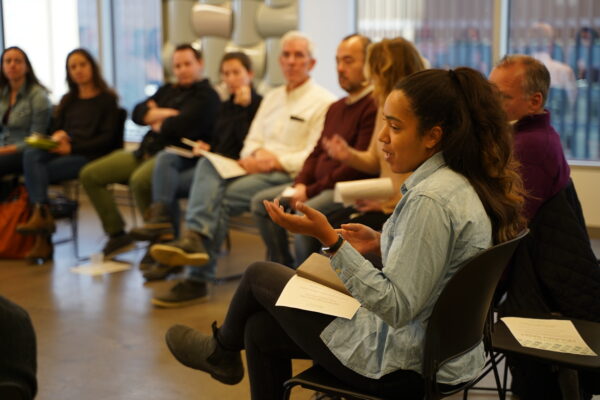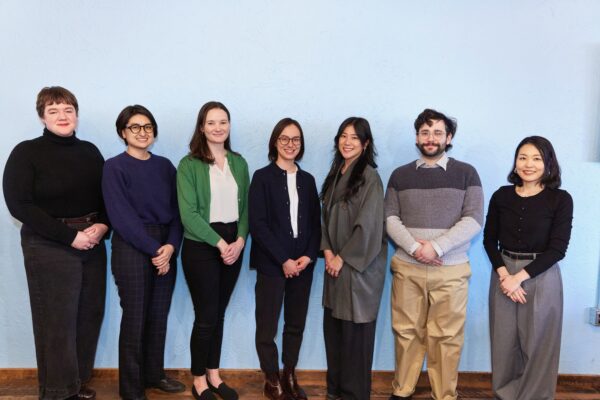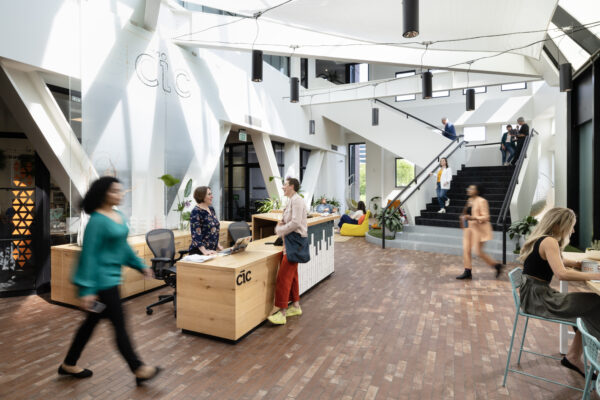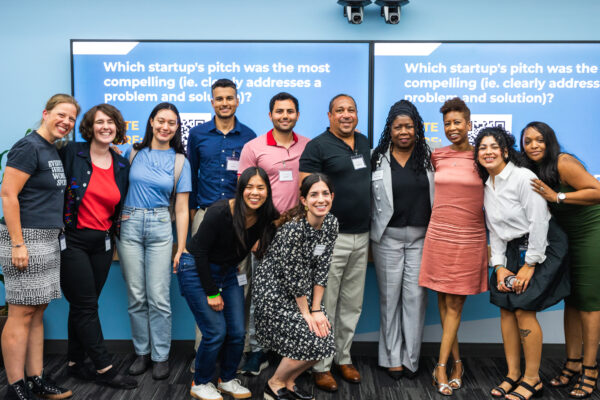Clinical-stage oncology company Akamis Bio is on a mission to create transformative therapeutics for individuals with hard-to-treat cancers. When it was time to expand that mission, they chose CIC Cambridge to establish their footprint in the U.S.
With an exciting pipeline of potential cancer therapies and support from world-class partners and investors, UK-based Akamis Bio selected CIC Cambridge as its beachhead to scale its organization and operations in the U.S., with CEO Howard Davis leading the charge.
Akamis Bio needed the flexibility to grow at its own pace
For companies establishing a presence in a new territory, having a right-sized space is critical. Akamis Bio at the outset wasn’t looking to secure lab space in the U.S., so Davis was focused on finding a small office that would help keep costs under control without locking the company into a long-term commitment. His plan was to bring an operations manager on board first, and then an additional five to ten hires over the next year. As he built his team, he wanted the freedom to explore what the company’s future space needs might be: where new hires lived, how much time they would spend on site, and where Akamis Bio might want to put down longer term roots for their U.S. operations.
“I wanted a space that would allow me some optionality—ideally not something that was going to lock me into an exact size for a long period of time, where we would run the risk of under- or over-calling our needs.”
This need for flexibility, Davis notes, is common among early-stage companies like Akamis Bio. “Drug development is an industry where companies navigate a number of binary outcomes as they move forward, positive or negative, that can radically change what a company’s growth trajectory looks like from a headcount or facilities needs perspective,” he explains. “Having a space that allows for upsizing, downsizing, or reconfiguring in response to fluctuating needs, he says, is invaluable.”
Davis added: “I’ve observed many folks having to scramble. Say you’ve just dropped into a fixed environment with a set number of square feet, and you’ve potentially invested in a build-out of the space based on where you thought you were headed—then, suddenly you might find yourself needing more space or having to reconfigure or even sublet depending on the situation your company finds itself in.”
Only CIC delivered the right work culture in the right location
Davis determined that a shared workspace was the right place to build and grow Akamis Bio’s U.S. presence and looked at a number of options in the Boston and Cambridge area. He was searching for a turnkey solution that would give him access to both individual offices and shared spaces for meetings and for interviews with potential hires. He also needed the option to add more offices as the team grew.
CIC checked all the boxes —including an ideal setting. Like all CIC locations, the Cambridge office is strategically placed, close to potential partners and talent in a district known for innovation. “Kendall Square is a special place for biotech,” Davis says. “The proximity to many of the investors I’ve dealt with historically and am dealing with now, as well as proximity to the universities, to the talent that is coming out of the universities, and to other companies that are constantly bringing new talent into our ecosystem—that’s pretty special.”
Having a work environment that would be attractive to new hires also factored into Davis’s decision. “Culture building is something that you have to focus on every single day, via things that you do, where you go to lunch, what you go to do after work. I foresee the things that CIC offers—like the networking events and Venture Café—being a very valuable thing for the small team that we’re going to have anchored here.”
Davis says that it’s also important for a space to have a professional feel, particularly when you’re bringing people in from the outside. When he was considering different spaces he says, it was clear CIC struck the right balance: a collegial and collaborative environment where productivity comes first.
Getting started was fast and frictionless
Davis made the decision to take the space at CIC Cambridge just before leaving on a week-long business trip. When his community manager at CIC asked when he wanted to move in, Davis asked if it might be possible to get in the week after his trip. To his surprise, the answer was “yes”. He was also pleasantly surprised to discover just how turnkey the move-in process was.
“Being able to come in on day one and seamlessly pick up my badge, come into my new office, sit down, plug in my laptop and be off and working was a pretty tremendous experience,” Davis says. “As employee number one in the U.S., I certainly was mentally prepared for a little more of a staccato start in getting the office up and running, especially in terms of getting my IT integrated with the local system and being able to access everything I needed back in the home network. But everything that had the potential to be high friction turned out to be very low friction with CIC.”
The CIC team makes transitions seamless—so Akamis Bio can stay focused on its mission
Akamis Bio went through a name change during its first year at CIC—a transition that the company’s community manager at CIC helped make seamless, Davis says. “It was everything from the signage outside my door to the change of our contracts to making sure that the mail going to the prior name of the company got to us, and that nothing was missed in the interim. The community manager was very helpful in just explaining to me how it would work.”
The same was true when the first new U.S. employee was hired. “When I told them I was bringing somebody on board,” Davis says, “our community manager sprang immediately into action and took care of everything, making sure the new individual could access the space, get a badge, get parking, and so on. I barely had to do a thing.”
This kind of responsiveness has been the same every time he has asked for support, Davis says. “Be it onboarding new hires or getting set up with a VPN internal to our suite. The CIC team was super helpful in helping us get that done. They’ve been very solicitous and supportive in making sure that we’ve got what we need to be efficient and effective here.”
At the end of the day I’m here to make medicines for cancer. And so being able to focus the bulk of my energy and time on that, and not dealing with facility issues, IT or logistics means a lot.”




